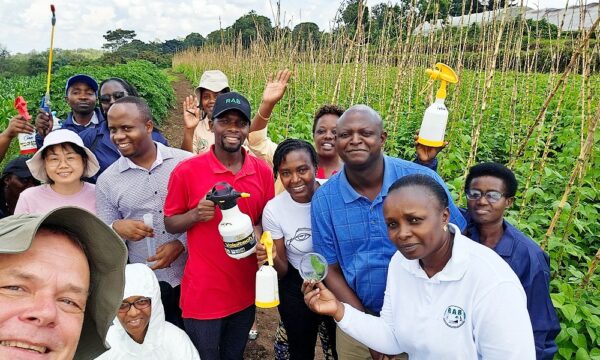A well-balanced article about the biological control of Japanese knotweed was published today in a British newspaper. Most articles about the release of the Japanese knotweed psyllid (Aphalara itadori, pictured) that appeared last year were either dismissive of the idea of releasing a non-native insect to combat another non-native species, often on the grounds that the selected agents will also damage native species. Or the articles just copied bits of press statements.
The article written by Ken Thompson in the Telegraph is refreshing in that it clearly explains the benefits of, and procedures behind safety testing for the biological control of weeds. No scaremongering, just a factually correct article written by a well-known scientist.
As Dr Thompson explains, in tests done before the release the psyllid only developed on species that are non-native and cause problems in some parts of the country. This was deemed acceptable as there was no evidence of risks to native plant species. Research has shown that the results of such pre-release tests are very good predictors of unwanted effects on native flora. The results of our tests were therefore a crucial part of the information provided to the government and the public as part of the application to release the psyllid to control Japanese knotweed in Great Britain.
Maybe I’m cherry-picking by writing about an article that is supportive of what we do, if many articles were critical. However, biological control of environmental weeds is new in Europe and many people, most of whom are unaware of the large and overall good experience with weed biocontrol worldwide, understandably have doubts. It is therefore great that an article with such good explanation aimed at the wider public has been published.
Now let’s wait and see the decline of the knotweed!
Related News & Blogs
Biological control in action: Zambia’s field days on fighting fall armyworm
Experts from CABI recently held two field days and an expo in Zambia, showcasing innovative approaches to pest management to 584 farmers, agro-dealers and other stakeholders to help raise awareness of approaches to tackle the invasive fall armyworm (Sp…
11 June 2025





